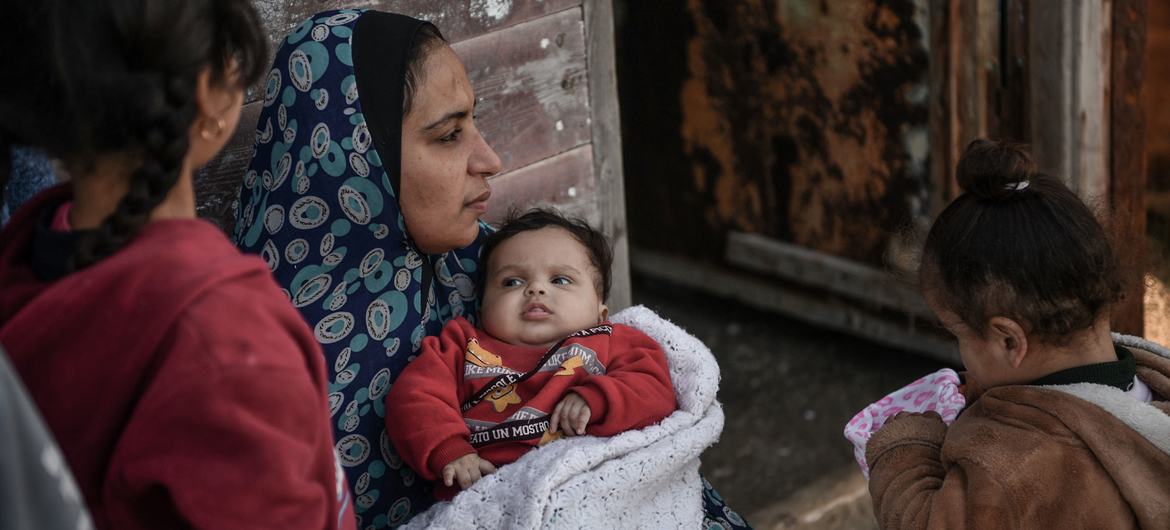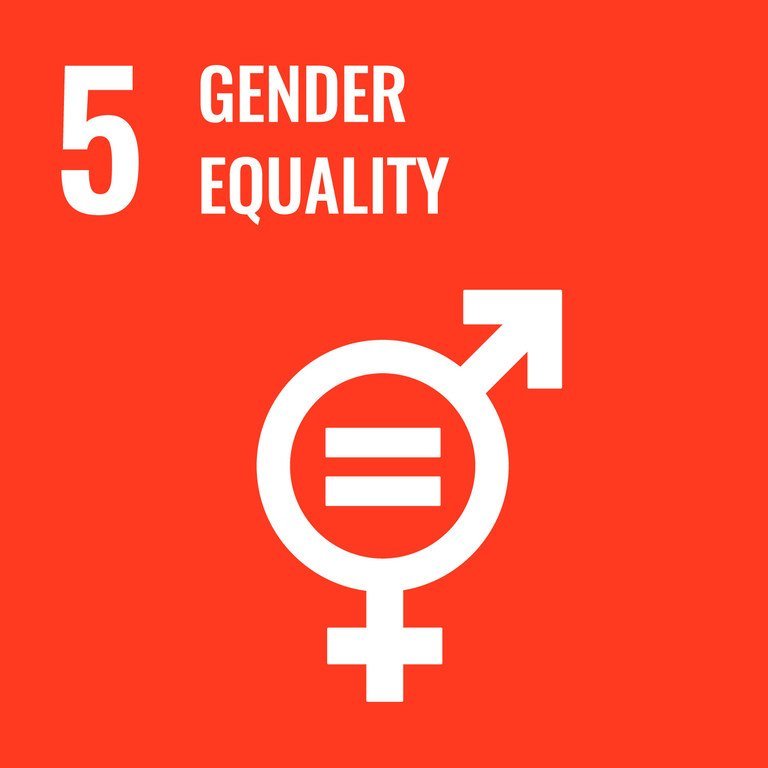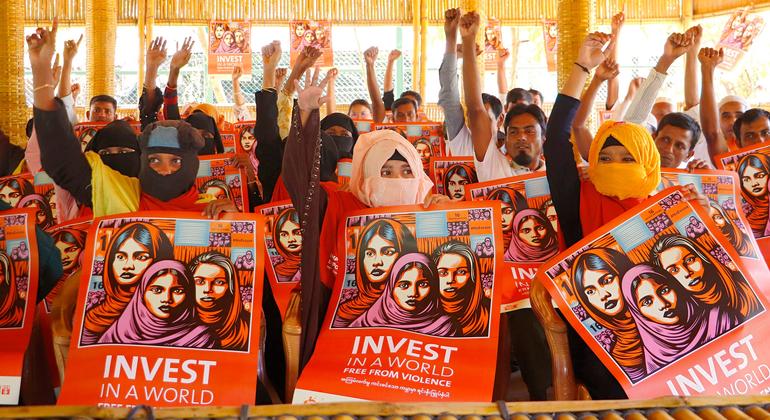“After decades of progress, women’s rights are being undermined and reversed,” said Secretary-General António Guterres.
Pointing to several ominous examples, he said women’s rights are severely restricted in Afghanistan, sexual violence is being reported during the ongoing Israel-Palestine conflict and the patriarchy is pushing back against hard-won rights women have striven to achieve.
“The women of my generation did not win the fight for their rights only to see their daughters and granddaughters fight the same battle,” he said at the town hall meeting.
‘Equality requires investment’
From inequalities in political power to the male-dominated artificial intelligence field, Mr. Guterres said governments and civil society must work together to ensure efforts include women at the table – in peacebuilding, bridging the digital divide and ensuring gender equality.
“The patriarchy may be pushing back, but so are we,” he said, encouraging governments to “put their money where their mouth is” by funding equal rights and opportunities for women and girls.
“Equality requires investment,” the UN chief said, emphasizing the need to urge governments to take action to reduce poverty and inequalities.
In this regard, the Summit of the Future is a chance to advance progress, he said, adding that women and girls have been a constant priority in the planning process.
“I will never stop fighting for a world that works for women and girls,” he said. “The question is of gender equality is a question of power. In my experience, power is never given; power has to be taken.”
Over 50 women dying each day in Gaza
Among a plethora of events held on the sidelines of CSW68, a gathering on Wednesday morning saw UN agencies and partners lead a discussion on the situation of women and children in war-torn Gaza, which faces growing hunger alongside the ongoing besiegement, bombardment and invasion by Israeli armed forces responding to Hamas attacks on Israel in October.
Heli Uusikyla of the UN agency for Palestine, UNRWA, provided a grim snapshot of the current situation on the ground, saying that women and girls remain extremely vulnerable amid continued bombing and attacks.
Since the start of the conflict, more than 31,000 civilians have been killed, among them were 9,000 women and 13,000 children, she said, briefing participants on the humanitarian impact of the conflict. Every day, about 53 women are killed, she said, citing UN Women reports.
Unhygienic living conditions have seen the spread of disease, and overcrowding in shelters currently sees 888 people per toilet and 5,400 people for each available shower room.
“People go days without eating,” Ms. Uuikyla said, with 155,000 pregnant women facing malnutrition.
‘One step away from famine’
Providing a close look at the current situation, Laila Baker of the UN reproductive health agency, UNFPA, said that tens of thousands of pregnant or nursing women are unable to access the food they need and 180 give birth every day.
At the same time, malnutrition rates for children under two has risen from under one per cent in October to an unprecedented 15 per cent today, she reported.
“Hunger is a deadly threat at the moment; every day is a fight for survival,” she said. “More than half a million people are one step away from famine in a society where famine was unheard of.”

A family forced to evacuate their home in Gaza now live in a refugee camp in Rafah.
Ceasefire needed now
All efforts to address concerns of women and girls before October “have turned to dust”, she said, calling for the immediate, safe delivery of humanitarian aid, in line with the provisions of the order issued by the International Court of Justice (ICJ) in January.
As UNFPA works tirelessly with partners, but some are under attack and medical staff lack the safe conditions, medicine and supplies to treat their patients.
“The only way to address that is to call for an immediate ceasefire,” she said, also calling for equal protection for all.
An estimated 7,000 delegates are participating in CSW68, which runs from 11 to 22 March. Read our explainer here and find out about the dozens of side events being held here.

SDG 5
SDG 5: EMPOWER ALL WOMEN AND GIRLS
- End all forms of discrimination and violence against women and girls
- Eliminate such harmful practices as early and forced marriages and female genital mutilation
- Adapt and strengthen legislation to promote gender equality and empower women and girls
- Ensure women’s full and effective participation and equal opportunities for leadership in political, economic and public life
- Ensure universal access to sexual and reproductive health care
Globally, almost half of all married women currently lack decision-making power over their sexual and reproductive health and rights.



